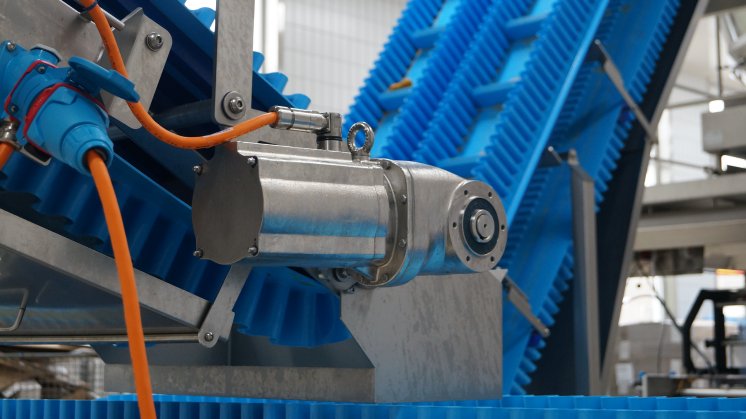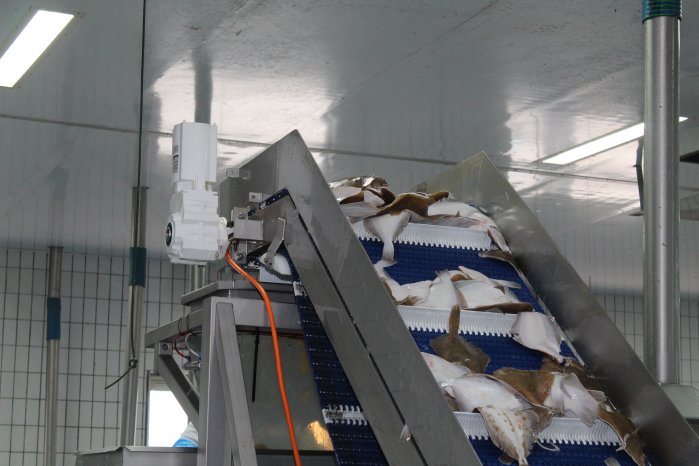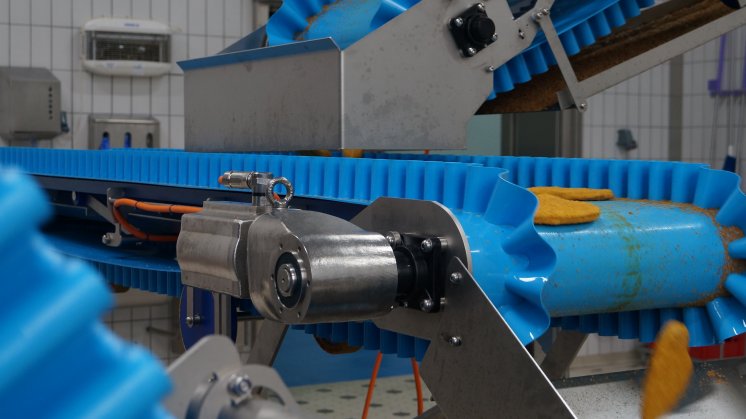Yasar Yüce, Product Manager at Bauer Gear Motor, a premier brand of Altra Industrial Motion Corp., explores why stainless steel is often considered the best option, but also examines if this is always the case for end users?
The challenges facing motors in the food and beverage industry are many. Rigorous hygiene standards govern all equipment on production lines. Washdowns with high pressure water and chemicals happen with regularity, so any device operating in these conditions must offer a high ingress protection to defend a device’s internals from damage. A high IP rating is a must.
These washdowns are employed to limit the spread of contaminates. To further limit this spread, components such as geared motors should offer a smooth design to limit opportunities for contaminates to gain a foothold. This smoothness must also be achieved with durability, as geared motors will be expected to operate to the same hygiene standards for many years without risking the quality of the food or beverages processed on the line. Corrosion poses the same risks, so a highly resistant exterior is the minimum requirement for any geared motor.
Hygienic standards are dictated by national and federal legislation, so any coatings or materials utilised in a design must match up to these pre-existing regulations. Organisations such as the FDA and NSF uphold these standards.
Stainless steel geared motors are often selected as they meet all application requirements without the need for further coatings. As a base material, stainless steel is inherently resistant to corrosion and chemicals, ensuring that repeated washdowns do not adversely affect the reliability or FDA compliance of the geared motor.
A stainless steel solution will be easier to maintain than a geared motor that relies on a specialised coating for its hygiene compliance. When stainless steel is scratched, it does not compromise the corrosion or contamination resistance of the geared motor, preserving its FDA conformity. With coatings however, if the top layer is scratched or flakes, it provides an opportunity for contaminates to gain a foothold whilst losing many of its corrosion protection properties. In areas of mechanical risk, where the geared motors are likely to subject to impact damage or excessive maintenance checks, this fragility is less than ideal.
For maintenance engineers working on-site it’s important to consider that any loss of regulatory conformity in a geared motor will result in production downtime as the problem is remedied. In an industry that operates with low margins per unit, protecting uptime is vital to ensuring profitability. So, with lower maintenance requirements and increased durability leading to longevity of FDA conformity, stainless-steel geared motors remain the industry standard.
The beauty of engineering is that every application is varied, so that’s not to say that stainless steel is the optimum solution for every food and beverage production area. In areas with no impact risk, specialised hygiene coatings can provide an alternative option to plant operators. Bauer Gear Motor recognises this and offers a range of aseptic gear motors with optimised coating systems resistant against near all common industrial cleaners in the range pH2 to pH12 – including an IE4 super-premium efficiency permanent magnet motor solution.
Our engineers help customers to assess their environments and provide expert guidance on what solution is most appropriate. We then work in conjunction with the customer to specify, install and maintain an optimum geared motor solution that will preserve uptime. In our experience it’s correct that stainless steel has become the industry standard solution in the food and beverage industry – however it’s important to offer customers the solution best suited to their needs.




